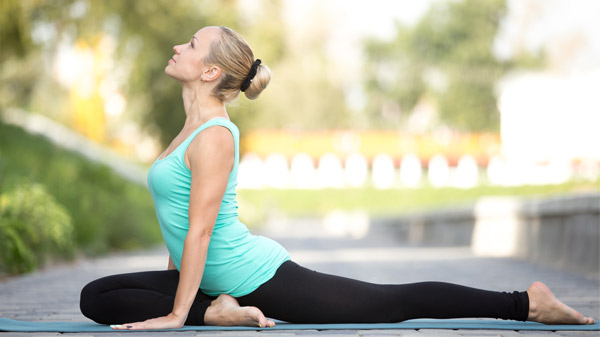
- Yoga For General Health -
Yoga plays a major role in balancing overall health, not just physically but also balancing the mental, emotional & social wellbeing. Including an hour of yoga practice which includes yogasana, pranayama, meditation & healthy lifestyle helps to prevent lifestyle disorders & helps to balance & overcome stress.
Yoga plays a major role to help people manage anxiety or depressive symptoms associated with a sedentary lifestyle & helps to improve the quality of living.
Yoga is a holistic practice that originated in ancient India and has gained immense popularity in the modern world. The practice of yoga has numerous benefits for general health, and here are some of them:
1. Improves Flexibility and Balance : Yoga poses, also known as asanas, involve stretching and holding different positions. Regular practice of yoga can improve flexibility and balance, making it easier to perform daily activities and reducing the risk of falls and injuries.
2. Reduces Stress and Anxiety : Yoga has been shown to Reduce stress and anxiety by calming the mind and regulating the nervous system. Regular practice of yoga can help manage stress, reduce anxiety, and promote a sense of well-being.
3. Boosts Immunity : Yoga practice helps to boost the immune system by increasing blood flow, reducing inflammation, and promoting the production of antibodies. It can also help to reduce the risk of chronic diseases by improving overall health.
4. Promotes Cardiovascular Health : Yoga practice can improve cardiovascular health by reducing blood pressure, improving circulation, and reducing the risk of heart disease. The practice of yoga can also help to lower cholesterol levels, which can reduce the risk of heart disease.
5. Increases Strength and Stamina : The practice of yoga can help to increase muscle strength, endurance, and overall fitness. It can also improve posture and alignment, which can reduce the risk of musculoskeletal injuries.
6. Improves Sleep Quality : Yoga practice can improve sleep quality by reducing stress, promoting relaxation, and regulating the nervous system. It can also help to alleviate sleep disorders such as insomnia.
7. Enhances Mental Clarity and Focus : Yoga practice can enhance mental clarity and focus by calming the mind and improving concentration. This can be particularly helpful for those who experience mental fog or difficulty with focus.
1. Improves Flexibility and Balance : Yoga poses, also known as asanas, involve stretching and holding different positions. Regular practice of yoga can improve flexibility and balance, making it easier to perform daily activities and reducing the risk of falls and injuries.
2. Reduces Stress and Anxiety : Yoga has been shown to Reduce stress and anxiety by calming the mind and regulating the nervous system. Regular practice of yoga can help manage stress, reduce anxiety, and promote a sense of well-being.
3. Boosts Immunity : Yoga practice helps to boost the immune system by increasing blood flow, reducing inflammation, and promoting the production of antibodies. It can also help to reduce the risk of chronic diseases by improving overall health.
4. Promotes Cardiovascular Health : Yoga practice can improve cardiovascular health by reducing blood pressure, improving circulation, and reducing the risk of heart disease. The practice of yoga can also help to lower cholesterol levels, which can reduce the risk of heart disease.
5. Increases Strength and Stamina : The practice of yoga can help to increase muscle strength, endurance, and overall fitness. It can also improve posture and alignment, which can reduce the risk of musculoskeletal injuries.
6. Improves Sleep Quality : Yoga practice can improve sleep quality by reducing stress, promoting relaxation, and regulating the nervous system. It can also help to alleviate sleep disorders such as insomnia.
7. Enhances Mental Clarity and Focus : Yoga practice can enhance mental clarity and focus by calming the mind and improving concentration. This can be particularly helpful for those who experience mental fog or difficulty with focus.
